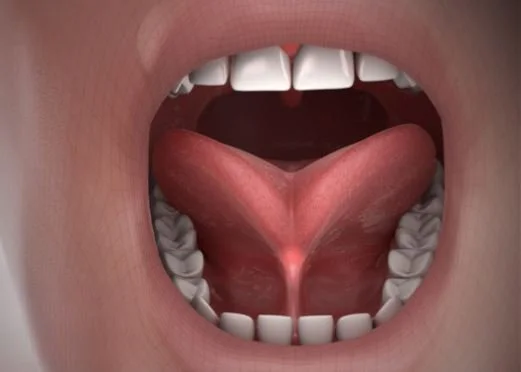If you’ve ever heard the term “tongue tie,” you might associate it with infants and childhood. However, tongue tie, or ankyloglossia, is a condition that doesn’t always resolve on its own and can persist into adulthood, often undiagnosed or misdiagnosed. In this blog, we'll explore what tongue tie is, how it affects adults, and the potential health problems associated with neglecting it.
What Is Tongue Tie?
Tongue tie is a condition where the band of tissue (frenulum) that connects the bottom of the tongue to the floor of the mouth is unusually short or tight. This restricts the movement of the tongue. In infants, this can lead to difficulties with breastfeeding, but in adults, it can manifest in various ways, affecting overall health and quality of life.
How Tongue Tie Affects Adults
While many adults with tongue tie might not realize they have it, the condition can cause a range of issues:
Speech Difficulties: Tongue tie can affect articulation and pronunciation. Adults may struggle with certain sounds or experience slurred speech, which can impact communication and confidence.
Dental Problems: Limited tongue mobility can contribute to poor oral hygiene. Difficulty in moving the tongue can hinder effective brushing and flossing, leading to increased plaque buildup, gum disease, and cavities.
Chewing and Swallowing Issues: Proper tongue function is crucial for chewing and swallowing food efficiently. A restricted tongue can make it challenging to chew food thoroughly or swallow comfortably, potentially causing digestive issues.
Sleep Disruptions: Tongue tie can contribute to sleep-related issues, including snoring or obstructive sleep apnea. The restricted tongue movement may affect the airway, leading to disturbed sleep patterns and reduced sleep quality.
Posture and Jaw Pain: The condition can also impact posture and cause jaw discomfort. The inability to move the tongue freely may lead to compensatory behaviors like poor posture or excessive clenching of the jaw, resulting in pain and discomfort.
Breathing Difficulties: A restricted tongue can affect nasal breathing and lead to habitual mouth breathing. This can dry out the mouth, increase the risk of infections, and contribute to conditions like chronic sinusitis.
Health Problems Associated with Neglecting Tongue Tie
Ignoring or not addressing tongue tie can lead to several long-term health issues:
Chronic Pain and Discomfort: Persistent jaw pain, headaches, and neck tension are common in adults with untreated tongue tie. These symptoms can significantly affect quality of life.
Gastrointestinal Issues: Difficulty in chewing properly can result in digestive problems, including indigestion and acid reflux, as food is not broken down adequately before reaching the stomach.
Social and Emotional Impact: The effects on speech and communication can lead to social anxiety, lower self-esteem, and even depression. The challenges of dealing with tongue tie can affect personal and professional relationships.
Sleep Disorders: Untreated tongue tie can exacerbate sleep disorders, leading to chronic fatigue, decreased cognitive function, and overall diminished well-being.
Addressing Tongue Tie in Adults
If you suspect that tongue tie might be affecting your health, consider taking the following steps:
Consult a Specialist: A speech therapist or an oral surgeon with experience in tongue tie can provide a thorough assessment. They can determine if your symptoms are related to tongue tie and recommend appropriate treatment options.
Treatment Options: In some cases, a frenectomy (a minor surgical procedure to release the tight frenulum) may be recommended. Therapy, including exercises to improve tongue mobility, may also be beneficial.
Lifestyle Adjustments: Adopting good oral hygiene practices, including regular dental check-ups and exercises to improve tongue function, can help manage symptoms and prevent complications.
Seek Support: Engaging with support groups or therapy for the emotional and psychological impacts of tongue tie can provide relief and strategies to cope with any social or personal challenges.
Conclusion
Tongue tie is not just a childhood issue; it can persist into adulthood and cause a range of health problems if left unaddressed. Understanding the condition and its potential effects on your well-being is crucial. If you believe you may be suffering from tongue tie, seeking professional evaluation and treatment can make a significant difference in improving your quality of life. Remember, addressing tongue tie is not just about fixing a physical issue—it’s about enhancing your overall health and well-being.
Book an appointment with us anytime at Pain Free Dentist Sydney!
Phone number: 9558 8988
E-mail: infor@painfreedentistsydney.com.au
